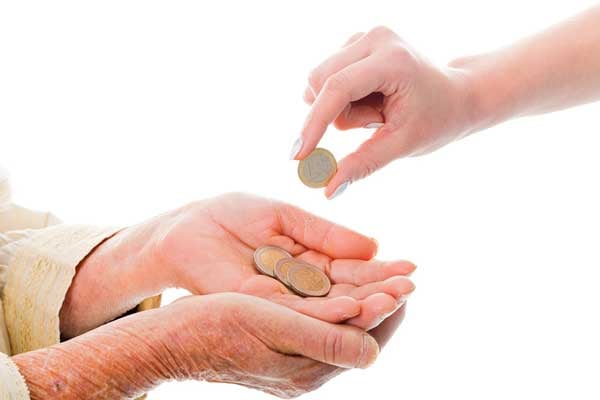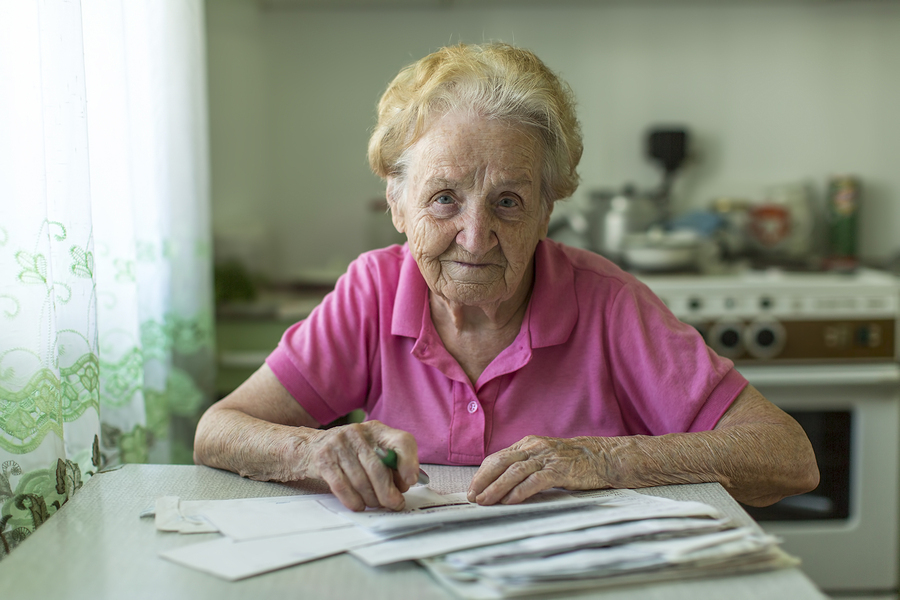 America's senior population is facing a crisis of unprecedented proportions. According to a report from the Kaiser Family Foundation, 45 percent of Americans over the age of 65 live below the poverty level. What does this mean in human terms?
America's senior population is facing a crisis of unprecedented proportions. According to a report from the Kaiser Family Foundation, 45 percent of Americans over the age of 65 live below the poverty level. What does this mean in human terms?
Many seniors live on less than $23,500 per year.
The Cost of Poverty
It means that 1 out of 7 seniors is struggling to meet basic needs like housing, food, and proper medical care. It means that half of all people on Medicare have incomes of less than $23,500 per year. It means that every day many seniors have to face the decision of buying food or paying for medication. It means that many seniors are living just one financial burden away from going under.
This short video illustrates the human costs of poverty among the elderly.
An unfortunate side effect of poverty among seniors is hunger. According to Feeding America, a hunger-relief charity, 4.8 million Americans over the age of 60 are food insecure.
In 2010, the National Alliance to End Homelessness predicted that homeless rates among the elderly will likely climb by 33 percent by 2020, meaning that about 14,000 seniors will be living in shelters or on the streets.
The Role of Social Security
Though Social Security was enacted to protect America's older population from the devastating effects of poverty, many worry that the rise in longevity for seniors and the coming retirement years of the Baby Boomer generation will tax an already burdened system, leading to a sharp increase in poverty levels among the elderly.
As it now stands, social security benefits, a handful of other federal programs, and state programs like food stamps are all that many seniors can depend upon to meet life's basic necessities.
Addressing the Problem on a Personal Level
For caregivers of the elderly, these statistics are more than troubling. While many seniors live on less than $23,500 per year, their caregivers may also be living close to or even below the poverty line. For a large number of seniors, financial help from family and friends is not available.
As a caregiver, what are some things that you can do to ease the burden of poverty for a loved one? Here are some tips:
1) Accurately assess the level of need your loved one is experiencing.
In some cases, an aged parent may be hesitant to reveal the extent of his or her financial issues because of embarrassment or a sense of duty to protect you from worry. This means that you must be observant when with your loved one. In a kind and compassionate way, talk with your parent about his or her financial situation to get an accurate picture of current needs.
2) Take note of signs of a financial struggle.
Many seniors make great effort to hide signs of money troubles. However, there are some telltale signs that may provide a clue.
For instance, when you visit your loved one, is the pantry and refrigerator stocked with a reasonable amount of nutritious food? Is the house temperature comfortable, or is your parent perhaps saving money by turning the thermostat down in the winter and up in the summer? Does your loved one seem unusually anxious or worried if an unexpected bill arrives?
All of these things may be signs that financial help is needed.
3) Help your senior find financial assistance.
There are a variety of federal, state, and local programs that may be of assistance to the elderly. With a little research, it is often possible to find local charitable organizations that might also lend a helping hand to seniors in trouble. Checking with your local department of aging may be a good first step in your research.
4) Offer to help with bill paying chores.
While it is important for seniors to stay independent for as long as possible, it is also true that as people age, they sometimes begin to handle money inappropriately. Mental decline may make seniors less than competent to handle the bills.

Help your loved one with bill paying tasks where possible.
In some cases, although the senior is still mentally sharp, he or she may not notice extra or unnecessary fees hidden in bills from creditors. Looking over the bills with your loved one may result in savings.
5) Protect your loved one from identity theft and scams.
Sadly, seniors are often a target for unscrupulous people. Educate your loved one about how to protect his or her identity, how to protect his or her personal property, and how to recognize and reject scams that target the elderly.
The Bottom Line
Poverty affects a staggering number of American seniors today and, according to projections, will likely continue to be of serious concern for a long time to come. Financial planning is essential to protect your loved one from the effects of poverty. Taking steps now will help ensure that your senior is safe, secure, and financially comfortable in his or her golden years.
mmLearn.org offers a large library of free videos for caregivers of older adults, covering topics pertaining to senior care. Whether you are a healthcare professional or a family caregiver, if you are caring for an older adult we know that you will find mmLearn.org an essential learning and guidance tool for all of your caregiver training needs. To take advantage of this valuable information, access our free online caregiver videos today.
